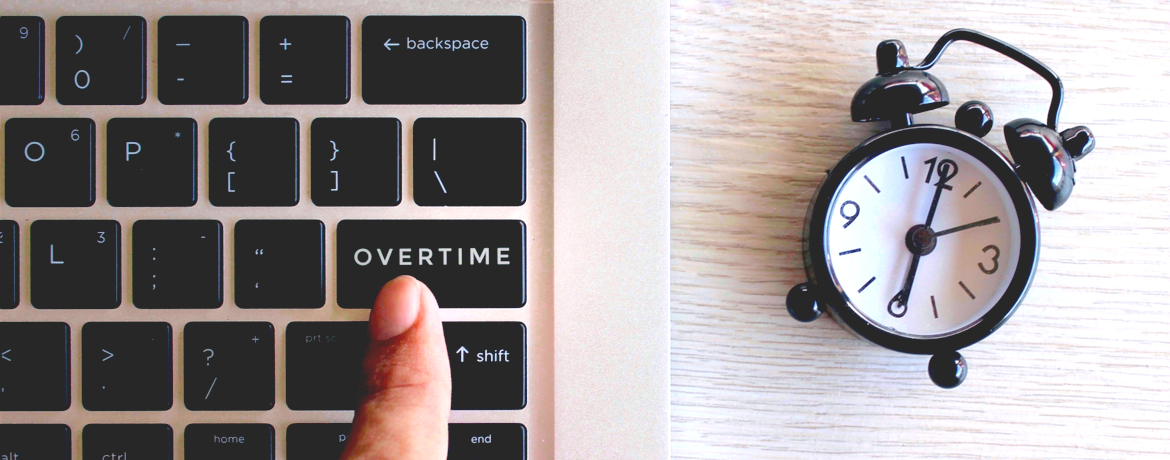Overtime and its compensation are often the cause of disputes between employees and employers. This is especially true when overtime is still “on the books” after a dismissal and ex-employees want to be paid for this overtime.
But who has to prove whether overtime was actually worked? So far, it has been the employee.
And that has not changed even after the time clock ruling of the Court of Justice of the European Union (ECJ), the Federal Labour Court ruled (BAG, Verdict v. 04. 05. 2022, Az.: 5 AZR 359/21).
Burden of proof in overtime pay dispute previously carried by employee
In the past, the Federal Labour Court (Bundesarbeitsgericht – BAG) has of course already dealt with this issue: If, for example, an employee demands payment for overtime after being dismissed, he or she must provide evidence that the overtime was actually worked. Employees therefore had to prove that the work they actually did exceeded the contractually agreed working hours.
ECJ ruling on the recording of working time: relevant for overtime pay?
Whether this case law can be upheld in Germany suddenly became doubtful with the time clock ruling of the ECJ in 2019. The ECJ ruled in May 2019 (ECJ, 14.05.2019 – C-55/18): Employing companies in the EU are obliged to “introduce an objective, reliable and accessible system for the recording of working time”. As a result, the question arose: Does this decision have an impact on the allocation of the burden of proof in a dispute about overtime pay if the employer company does not use a working time recording system or only uses an incomplete one?
The labour courts took a different view: one part saw no reason in the ECJ ruling to reverse the previous rules on the burden of proof. Another part saw it differently: If the employer does not record the working hours of its employees, the employer must explain and prove that the employee did not work the alleged overtime. This would mean a departure from the previous case law of the BAG.
Current BAG ruling on burden of proof in overtime dispute
In May 2022, the Federal Labour Court (Bundesarbeitsgericht – BAG) had to rule on a dispute about overtime pay. This was because labour courts had previously assessed the burden of proof differently against the background of the ECJ ruling in a case that ultimately ended in an appeal before the BAG.
The case in brief: An employee demanded compensation for overtime after the end of the employment relationship in a court dispute. However, the employer only recorded the beginning and end of the working hours of his employee, who was employed as a delivery driver. Break times were not recorded. After deducting the daily working time owed, the evaluation of the time records showed a balance of 348 hours of overtime in favour of the employee.
The employee demanded payment for the overtime. He claimed that he worked the entire recorded time and did not take any breaks. Working through the delivery orders would have required him to forego breaks. The employer denied that the worker had worked through the break periods.
The BAG judges came to the conclusion: The employee would have had to prove that he had also worked during the breaks and had thus accumulated overtime to be compensated. He did not succeed in doing so in a sufficiently concrete manner.
The judges did not see any reasons for shifting the burden of proof in the light of the ECJ’s time clock ruling. The ECJ decision was limited to the regulation of aspects of the organisation of working time from the point of view of the protection of workers in matters of health and safety. It therefore had no impact on the principles developed under German substantive and procedural law on the allocation of the burden of proof and presentation.
New ruling confirms old case law on burden of proof in overtime compensation proceedings
The BAG’s ruling thus provides clarity on the question of the burden of proof in overtime remuneration proceedings after the ECJ ruling on time recording had caused uncertainty in 2019.
The employee who demands payment for overtime in court must prove in court that it was overtime and that it was actually worked. This also applies if the employer technically records the working time. Thus, the bottom line is that after some back and forth in the courts, nothing has changed for employers in overtime pay litigation in terms of the burden of proof.
Do you have any questions?
Do you need further support on the topic of labour law?
Then please feel free to contact me to discuss directly how I can support you!
Our expert advises:

Christian Seidel
Lawyer, Specialst in labour law
Authorized signatory of Acconsis GmbH Rechtsanwaltsgesellschaft
Service-phone
+ 49 89 547143
or by e-mail c.seidel@acconsis.de

